Paint It Black Read online
Page 5
But this professor—Tierce, Raven Tierce—she was just so damned hard to please. And she really didn’t seem to like Cheever or his art.
How perfectly balanced, Mr. Sanders. Did you do pixel math to make sure no emotion actually showed through?
What a subtle use of… beige, Mr. Sanders. Way to go big.
No sculptures in your portfolio yet? No, that would require a commitment, wouldn’t it?
Which was where he was now.
Three days, three pieces. Mixed media—he needed one sculpture of clay, which he had to do first so it could get fired, one papier mâché that felt like a little kid’s art project, and one comic book.
The comic book was his own idea. He’d already drafted most of the book and even gotten story pointers from a friend in animation—Marcia, actually—who had been happy to talk to him from rehab because apparently, she was bored shitless. He just needed to put the finishing touches on it and print it out.
Three days. He didn’t need drugs—just hard work. The guitar Mackey had given him for his fourteenth birthday called a soft siren song in the corner of his room, but he ignored it. The hours of covert practice, when nobody could hear him and compare him to his brothers, were one of his biggest comforts and his secret shame. That guitar sang to him more than color, more than lines or balance and proportion—but art, dammit. Art was where he was going to make his mark.
Who needed inspiration? Who needed the big all-encompassing love of creation?
Cheever had elbow grease and willpower.
Cheever had this locked.
THREE DAYS later, he arranged his portfolio on the display table on top of a cool white tablecloth. Much of his work was done in subtle, neutral colors, so the white served as a foil, he hoped, and made the display eye-catching.
Please let this work. Please let this work.
He’d done his best. Everything he’d learned in the last ten years about color, balance, proportion, aesthetics, politics—all of it was here, on display, for his professor to assess.
He wanted in the master’s program. He wanted it so badly, he could taste it.
But Professor Tierce didn’t seem impressed.
He’d seen her go to other students and interact with their displays. Even when a piece was an obvious mistake, she’d laugh and talk gaily about how screwing up big was just proof of a big heart. Cheever knew—knew with every cell in his brain—that he was a much more capable artist than most of the students in his class.
He just didn’t know, couldn’t even fathom, why Tierce seemed to hate him so much.
“Hm,” she murmured, coming up behind him. He startled so badly, he almost knocked his abstract spiral off the table. It had been his clay project, and he’d had more fun with it than he’d expected, because it had become a sort of puzzle—how to get the thing to spiral up and still balance on the table.
“Yes, Professor?” He smiled prettily and batted his eyelashes. Objectively he knew his eyes were a pleasing feature—big and green in his naturally tan complexion over a small freckled nose, they contrasted nicely with his curly auburn hair that he grew to his collar in ringlets.
He’d had offers, male and female, but always, always, the sound of Aubrey Cooper’s harsh breaths echoed in the back of his mind.
“I see you took the same risks you always take,” she said with a sigh. She was a midsized woman, in her fifties, with mixed genetics. Her hair was a shower of graying spiral curls sprouting from her crown, and her skin was only a few shades darker than Cheever’s. Her eyes—dark brown—were frequently laughing or warm.
Just never, ever when she looked at Cheever’s art.
Seeming bored, she picked up the comic book, frowning as she looked through it.
“So, a superhero who… who rescues kittens from trees?” she asked, frowning at him. “Is that all?”
“He’s… you know. A grade-school hero. Saves kids from bullies. Helps them with their homework. That sort of—”
“Have you not read Captain Underpants?” she asked in disbelief.
Cheever swallowed. “No, ma’am.” His first school had been too poor to have it, and his second had expected him to be reading Animal Farm by the time he got there.
“Diary of a Wimpy Kid? Any of that modern YA stuff with the pictures inside it?”
He shook his head, not sure where this was going. “No….”
“Well, you need to. The art’s not as pretty, but it’s a damned sight better than this.”
Cheever swallowed. “Uhm, sorry. I’ll… if you want me to study some young adult literature and—”
“Don’t bother.” Tierce sighed. “I mean, it’s not like you did, anyway.”
“That’s not fair!” he burst out, rubbing his chest. “That’s not fair. Professor, I worked my ass off for this—I read all the descriptions, I planned, I ran computer simulations, I—”
“Oh my God! Mr. Sanders, you’re an art student! Don’t you know what art is?”
“Which definition do you want?” he asked, his voice cracking. “I’ve got Foucoult, Pyncheon, Gardner—there’s all sorts of definitions of art—”
“I don’t believe this!” She pulled her hair back in a bunch and then released it, allowing it to leap out over her head again. “Cheever! Do you know how I feel when I see your art?”
He looked at his carefully assembled items, from the comic book in her hands to the seven pieces he’d done of Northern California landscapes. “Uh… pleased?”
“Nothing! Your art is all balance and proportion and no emotion! How did you feel when you produced all this?” She made a sweeping motion with her arm, and Cheever bit his lip.
“Happy,” he said tentatively. “I… I loved doing this. It made me… happy—”
She shook her head. “No. No, it didn’t. It might have been pleasant, working on this stuff, but I gotta tell you, I am not feeling happy from your portfolio. That’s the point. I’m not feeling anything.”
Cheever swallowed. “But… but I worked so hard! I… I dedicated my whole education to this. I—”
“Aren’t you Mackey Sanders’s little brother?”
Cheever gasped like his professor had swung a pickaxe made of ice at his chest. “Uh…. Yeah. My brothers are—”
“Do you know why people like his music? Do you have any idea?”
“It’s good?” Because Cheever had listened to every goddamned CD—and damn. Damn if his brothers couldn’t do their thing exactly right.
“Because the songs that don’t make the listener feel like barbed wire is ripping through their chest make them feel like someone’s stitching up the wound with a rusty needle and a bottle of scotch for the pain. It’s not always happy, but God, those songs make you feel. That’s art, Cheever. This? This is… craft work. You could make a pretty bowl and get a lot of money for it, but nothing on this table is going to make someone relive the best or the worst moment of their life. That’s what art is all about, and that’s why you fail every time you come out of the gate!”
“Fail?” Cheever asked in a small voice. “I’m… I’m failing?”
“No,” she said, voice almost kind. “But you’re not getting an A. This work isn’t bad, and it doesn’t offend. But it doesn’t inspire either. We’re calling this a C.”
“C?” He wasn’t sure he’d heard right.
“Look, Mr. Sanders, you want to impress me? Give me art that makes me feel that look on your face right now.”
In an instant, he was that beleaguered little kid at the kitchen table. “But nobody wants to share my hell!” he shouted. “What good is that? To force your hell on someone else? Art’s supposed to be a cure for hell—not a bridge to it.”
She gave him a look that was pure pity. “There is no cure for hell,” she said softly. “There’s only showing it to other people so they can share the burden.”
Cheever gaped at her, at a loss, disappointment like a shiv in his gut.
A C?
And a directive to b
e more like his brothers.
A C—and no graduate course?
He got a C?
Cheever stumbled out of the portfolio exhibition and into the quad at CalArts, blind with pain and disillusionment, his plan shattered at his feet.
He’d failed. Everything he’d tried to build for himself, every grade he’d ever earned, all of it, in shambles.
He had his phone in his hand before he even knew what he was doing. His art wasn’t any good. No good. He’d failed. No art for Cheever.
He could only think of one thing that would ease the pain.
Fumbling with his phone, he called up Connor Gilroy. “Connor? Yeah, it’s me. I need a party package. Cheever Sanders, party for one.”
Or ten.
Or a hundred.
Maybe he’d be like Marcia, except they wouldn’t find him until his heart stopped.
That worked for Cheever.
It really fuckin’ did.
Let It Bleed
LATER IT would hit Blake how close they’d come.
A matter of minutes, maybe?
Maybe an hour.
Blake took the first flight out of Seattle he could find and took a Lyft to the house in Laurel Canyon so he could get his truck. From there, it was two hours in traffic to the college. God, it was a fucking eternity, right?
If Cheever hadn’t been so stoned, he might have been able to cut deeper, and then it would have been over.
Blake made his way to the CalArt’s dorm in Valencia, the hilly Los Angeles topography as familiar to him as his own breath in his ears. The dorm itself was empty. He could see signs of the boy—sort of. High-end clothes scattered around like they’d been hit by a whirlwind. An acoustic guitar, which surprised Blake, ’cause he thought the kid had pretty much turned his back on all the things his brothers loved, sat alone in the corner on a pile of music books.
But those things were incidental. The important thing was the litter of artifacts that sat in the center of the room. They looked like projects, or they had been once.
Someone had jumped up and down on them and then set them on fire.
One of them, a picture in what looked to be a series of landscapes, depicted the raw open acreage all the way up Five, toward Redding—toward Tyson/Hepzibah. Something about the picture left Blake… chilled. His stomach cold, his bowels colder.
It could have been the way Blake felt about Lancaster—and the way all the guys in the band felt about Tyson/Hepzibah—but there was something wrong with that landscape. There was something horrible about the color of the sky and the color of the bleached farmland.
Too much gray?
He didn’t know jack about art, but something about that picture reminded him of those pictures of dead animals that turned to rot. Sure, there was fur and a body at the beginning and earth at the end, but in the middle, there were maggots and putrefaction, and Blake could see that just under the surface.
That was the vibe he was getting from that picture, and it curdled his stomach. He looked around the room and cringed. There were a couple of those pictures there, and each one made Blake queasier than the last. Oh God. Apparently you could take Tyson/Hepzibah out of the boy, but part of the boy was definitely stuck in that suck-ass town.
“He’s not here,” said a voice behind him.
He turned and found a young woman, tiny—underweight, actually, as though she did more drugs than food. She had almond-shaped eyes and tawny skin, marking Asian ancestry, and long, thick black hair in a messy braid.
She was wearing what looked to be gray knit pajamas—very, very comfortable pajamas.
“Do you know where he is?” he asked, keeping his voice gentle. Something about this girl was delicate—peaked and sad and fragile.
She bit her lip and shook her head. “No. He was texting me at rehab every day, right? Like, I lived for his texts. And about three days ago, he called me, and he was… he was so upset. He’d gotten a C on a project, and it really tore him up.”
“Like a grade?” Blake asked, wrinkling his nose. Trav had made Blake get his GED, and like the Sanders kids, he’d gotten an online degree since then—but to be this upset about a grade? Blake had trouble with that.
“It was his whole life!” she cried, tears starting in her eyes. “He practically became a hermit, working on it. And she gave him a C, and he was… he was losing it. He said he called Connor, that he was going out like a rock star….”
Blake’s blood froze. For a moment, the world refracted around him, like a broken crystal, and he had to make himself breathe again.
“I’m sorry?” Inhale. Exhale. Do not think of what Mackey looked like after their last rock-star party. “Could you repeat that? And who’s Connor?”
She wiped her eyes with the back of her hand. “He’s our dealer. Cheever didn’t use—like maybe at parties after finals, but it wasn’t a habit… but everybody knows Connor. Cheever said he was going to call the guy, and I told him to call me back because I know that’s a bad move, right? And he texted me a couple of times. But I could tell he was really stoned, and….” She wiped her eyes again. “He missed all his finals. He… four years in this place, he kept a 4.0, and he missed all his finals, and—”
Blake’s blood wasn’t moving any faster. “Darlin’,” he said, trying to keep his voice even. “Do you have any idea where he might be?”
The girl nodded. “There’s a hotel—it’s downtown, we go party there sometimes.”
Blake nodded. “Can you take me there?” he asked, his pulse beating a sluggish tattoo in his ear.
“Can you take me back to rehab after we make sure he’s okay?” She wiped her face again. “I… I had to use a Lyft, and my parents aren’t sending me any more money until I’m clean, and—”
She took another deep breath, and Blake nodded, remembering everything he’d ever learned about being a decent human in the last ten years. When he’d been an addict, selling his ass for rent and coke, he’d have been able to walk away from this moment. But not now. Not when this little girl was looking like she could shatter into a million pieces. Not when Kell’s little brother was missing and in trouble. Oh man. He’d learned to help people since then, and he needed to do his best now.
“Darlin’, I will not only take you back to rehab, I’ll stop and get you a big shake and a burger on the way in. If I remember anything about rehab, it was that I craved the fuck out of carbs.”
She smiled a little. “I just want to find Cheever. He’s the only friend that didn’t ghost me after I went in, you know?”
Blake nodded and took her elbow gently, guiding her to the parking garage where he’d left his truck. “Those are the kind of friends you keep,” he said firmly. “What’s your name, sweetheart?”
“Marcia. Marcia Lin.” She sniffled. “Cheever’s the only one who calls me that, though. Everyone else calls me Marcy.”
“I like Marcia. I’m Blake. Blake Manning. Now, hon, how about you start telling me about this hotel, okay? I need to figure out the quickest way there.”
BLAKE HAD grown up looking down on LA from up the hill, in Lancaster. The nearby Tehachapi Mountains were often cold as fuck, if beautiful, but Lancaster was a whole lot of desert. There was often nothing to do but look out at the sky and see the light pollution of Los-fucking-Angeles, looming over the horizon.
It seemed like everything in the world must be happening there, while not fucking much was going on in Blake’s mama’s trailer park. Blake had figured that getting to LA was the thing that would change his life the most.
It wasn’t until he started playing dive bars that he realized despair had the same acidic taste in every part of the world.
The road Marcia took him down was one of those roads that used to mean something before the freeways became the lifeblood of the area. As it was, it sat a few blocks off the 405 in a nest of dive bars, strip clubs, and equally shitty hotels. This one, the Trident, featured a killer-clown merman on the front, with neon blue skin, scales shaped like pendu
lum blades, and nipples that were oddly disproportional.
Blake figured that merman on the sign was for the kids who accidentally smoked oregano instead of weed, so they could look at that thing and think they were getting high.
“This the place?” he asked doubtfully. Peeling paint, mold under the eaves, cracked windows, and pavement that looked like hamburger. He’d stayed in better places than this when he was selling his ass for rent.
But Marcia nodded, her peaked little face going even paler, her skin stretched so taut across her wide cheekbones it looked like her apple cheeks would burst through her skin.
“I don’t get it,” he muttered, swinging from the Dodge Ram and moving around to help her out. He’d all but tossed her in the front seat to begin with, because she was short and wearing Eeyore slippers, for sweet Christ’s sake, and he was in a fucking hurry.
“Don’t get what?” She weighed less than Kell’s oldest, Kyrie, who was seven years old.
“You kids got money. I mean, you got cars, you got school. What the fuck you people doing in this dump? I stayed in places like this because I had to—but you guys?”
“I don’t know, Mr. Manning,” she said, her voice wobbly as fuck. “You ever felt so ugly on the inside, you didn’t want to be someplace pretty?”
Blake shivered. He had—after running away from home, he’d felt like that for a couple of years. But he hated thinking about Cheever Sanders, who had been cool and removed and beautiful and arrogant ever since he’d had the money and the privilege his brothers gave him, feeling that way.
Had he felt this ugly all along?
Blake was heading for the manager’s cubicle, sweating in the humid late-spring air, when one of the doors opened and a couple of boys staggered out, laughing.
They were rich boys—he could tell by the high-end Calvin Klein underwear, which was the only thing they were wearing, and the cocaine that dusted their faces like talcum.
“What’s so funny?” he asked sharply, mostly to cut through their high.

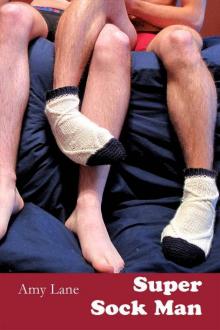 Super Sock Man
Super Sock Man Safe Heart (Dreamspun Desires Book 102)
Safe Heart (Dreamspun Desires Book 102)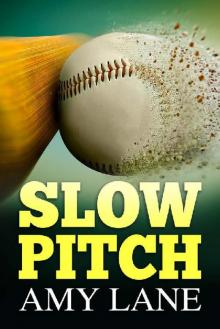 Slow Pitch
Slow Pitch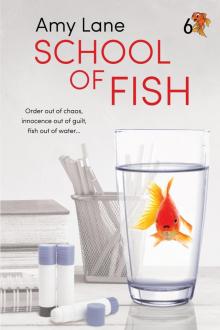 School of Fish
School of Fish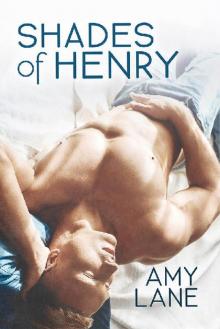 Shades of Henry (The Flophouse Book 1)
Shades of Henry (The Flophouse Book 1) Ethan in Gold
Ethan in Gold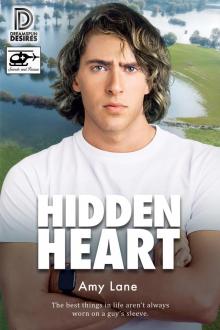 Hidden Heart
Hidden Heart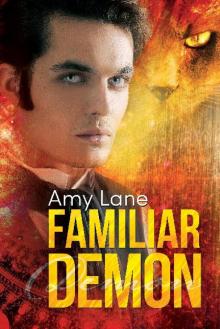 Familiar Demon
Familiar Demon Shortbread and Shadows
Shortbread and Shadows Silent Heart
Silent Heart Shortbread and Shadows (Dreamspun Beyond Book 41)
Shortbread and Shadows (Dreamspun Beyond Book 41)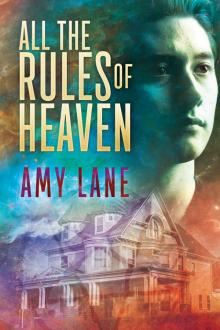 All the Rules of Heaven
All the Rules of Heaven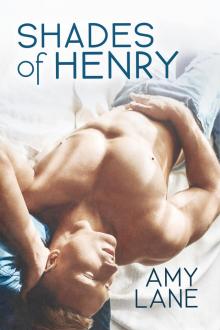 Shades of Henry
Shades of Henry Homebird
Homebird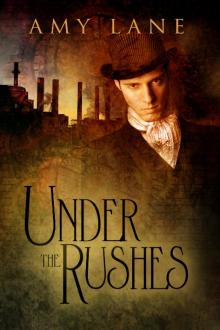 Under the Rushes
Under the Rushes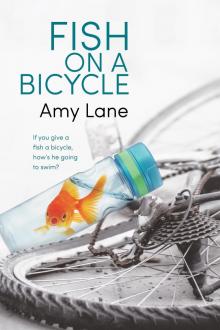 Fish on a Bicycle
Fish on a Bicycle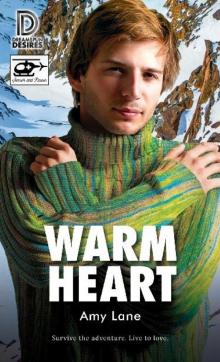 Warm Heart
Warm Heart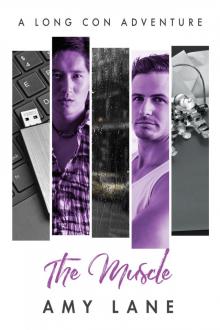 The Muscle
The Muscle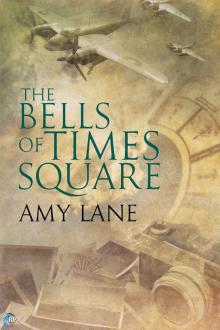 The Bells of Times Square
The Bells of Times Square![Jack&Teague [& Katy] stories 1-5 Read online](http://i1.bookreadfree.com/i/03/19/jackandteague_and_katy_stories_1-5_preview.jpg) Jack&Teague [& Katy] stories 1-5
Jack&Teague [& Katy] stories 1-5 Wounded, Volume 1
Wounded, Volume 1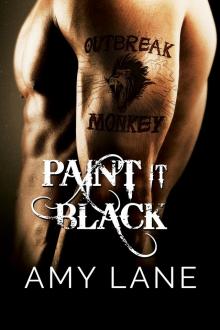 Paint It Black
Paint It Black The Virgin Manny
The Virgin Manny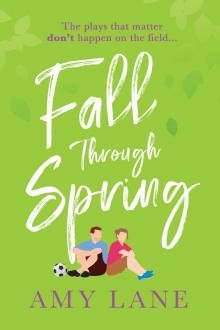 Fall through Spring
Fall through Spring Clear Water
Clear Water If I Must Lane
If I Must Lane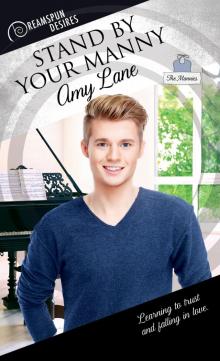 Stand by Your Manny
Stand by Your Manny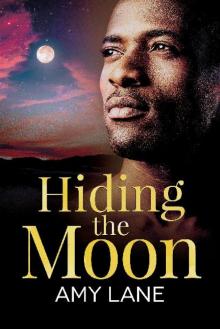 Hiding the Moon
Hiding the Moon Freckles
Freckles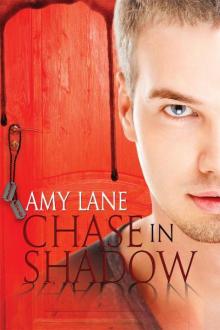 Chase in Shadow
Chase in Shadow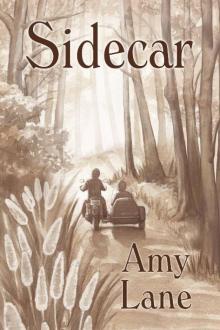 Sidecar
Sidecar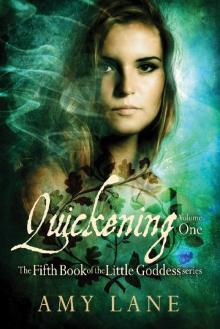 Quickening, Volume 1
Quickening, Volume 1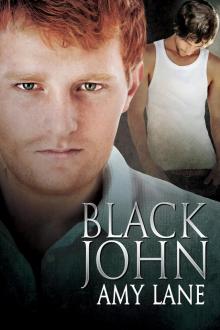 Black John
Black John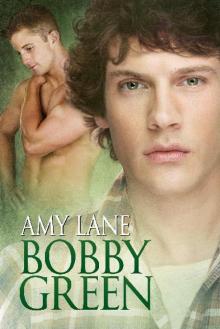 Bobby Green
Bobby Green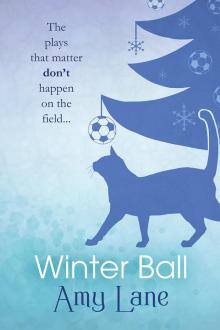 Winter Ball
Winter Ball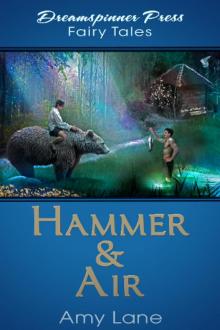 Hammer & Air
Hammer & Air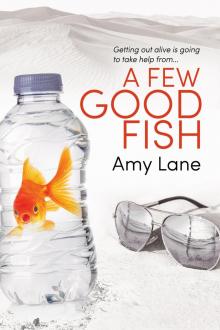 A Few Good Fish
A Few Good Fish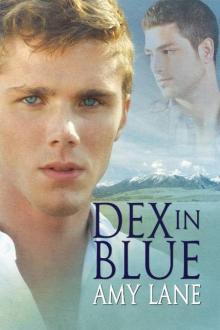 Dex in Blue
Dex in Blue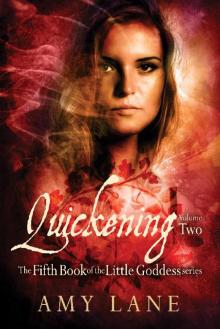 Quickening, Volume 2
Quickening, Volume 2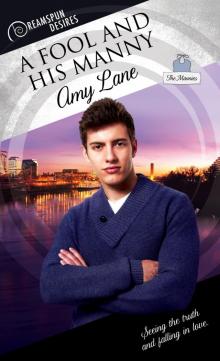 A Fool and His Manny
A Fool and His Manny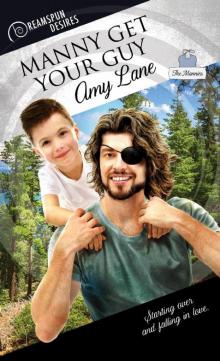 Manny Get Your Guy (Dreamspun Desires Book 37)
Manny Get Your Guy (Dreamspun Desires Book 37)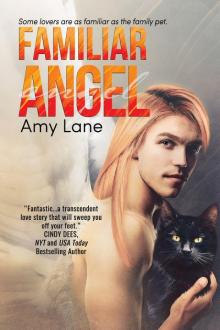 Familiar Angel
Familiar Angel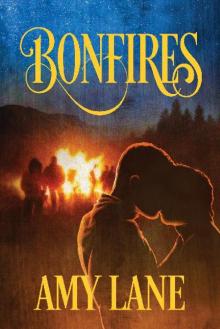 Bonfires
Bonfires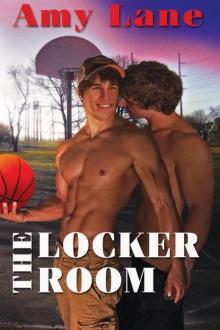 The Locker Room
The Locker Room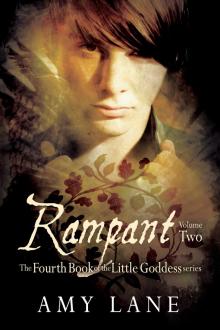 Rampant, Volume 2
Rampant, Volume 2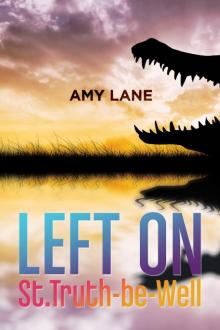 Left on St. Truth-Be-Well
Left on St. Truth-Be-Well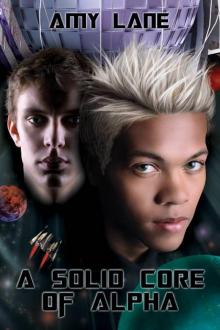 A Solid Core of Alpha
A Solid Core of Alpha Red Fish, Dead Fish
Red Fish, Dead Fish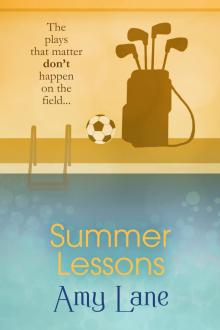 Summer Lessons
Summer Lessons Country Mouse
Country Mouse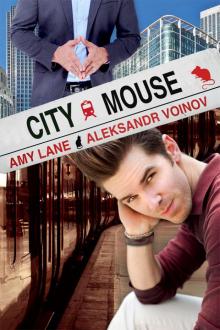 City Mouse
City Mouse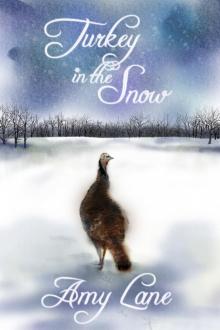 Turkey in the Snow
Turkey in the Snow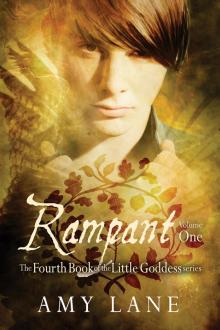 Rampant, Volume 1
Rampant, Volume 1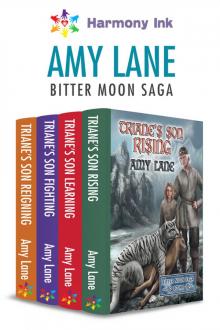 Bitter Moon Saga
Bitter Moon Saga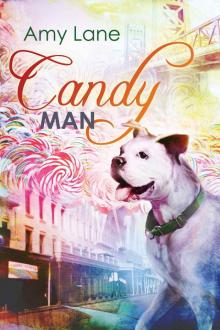 Candy Man
Candy Man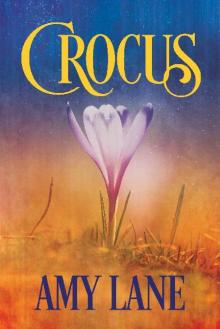 Crocus
Crocus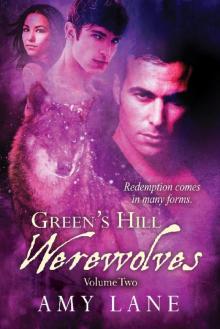 Green's Hill Werewolves, Volume 2
Green's Hill Werewolves, Volume 2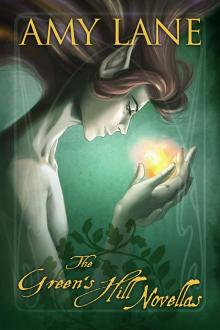 The Green's Hill Novellas
The Green's Hill Novellas